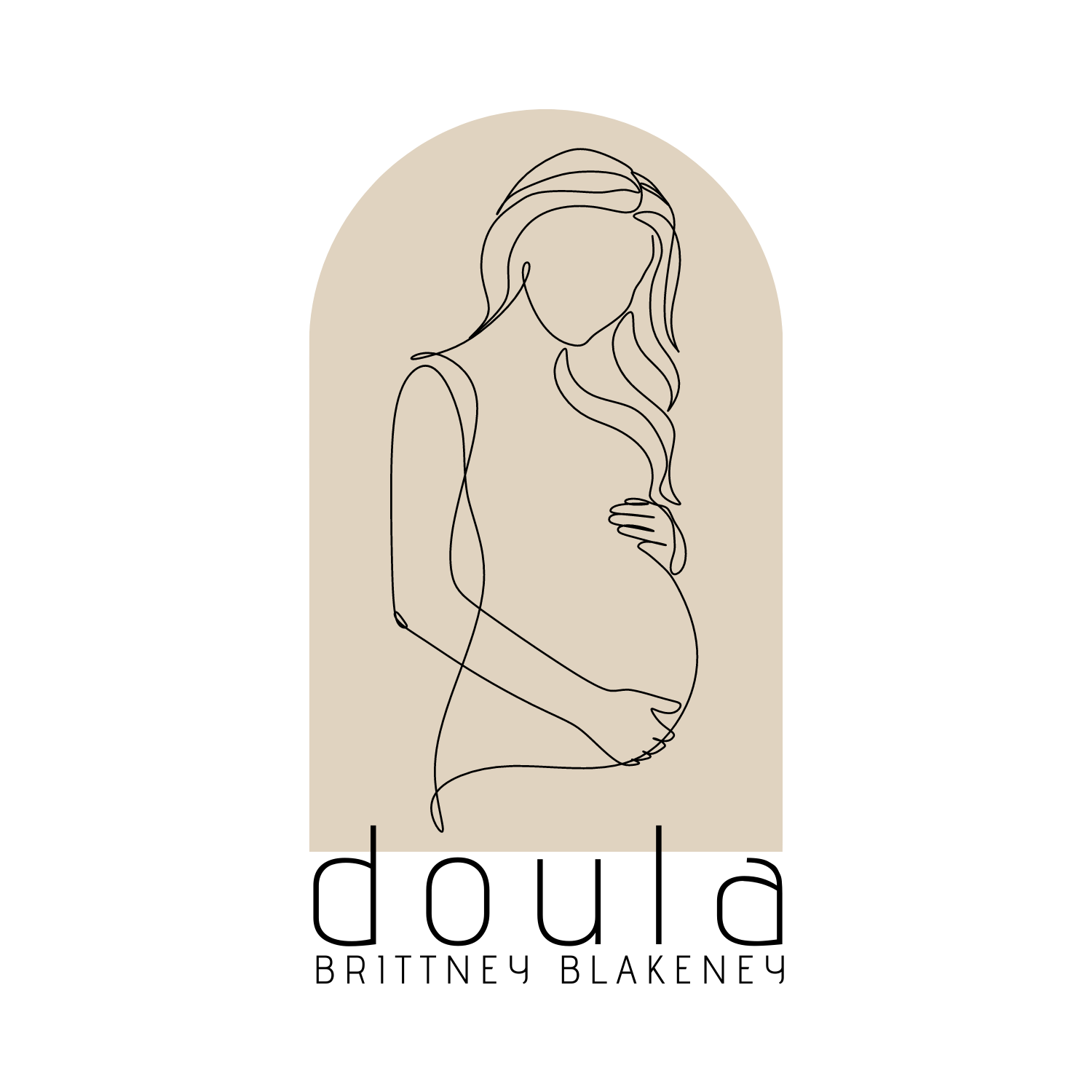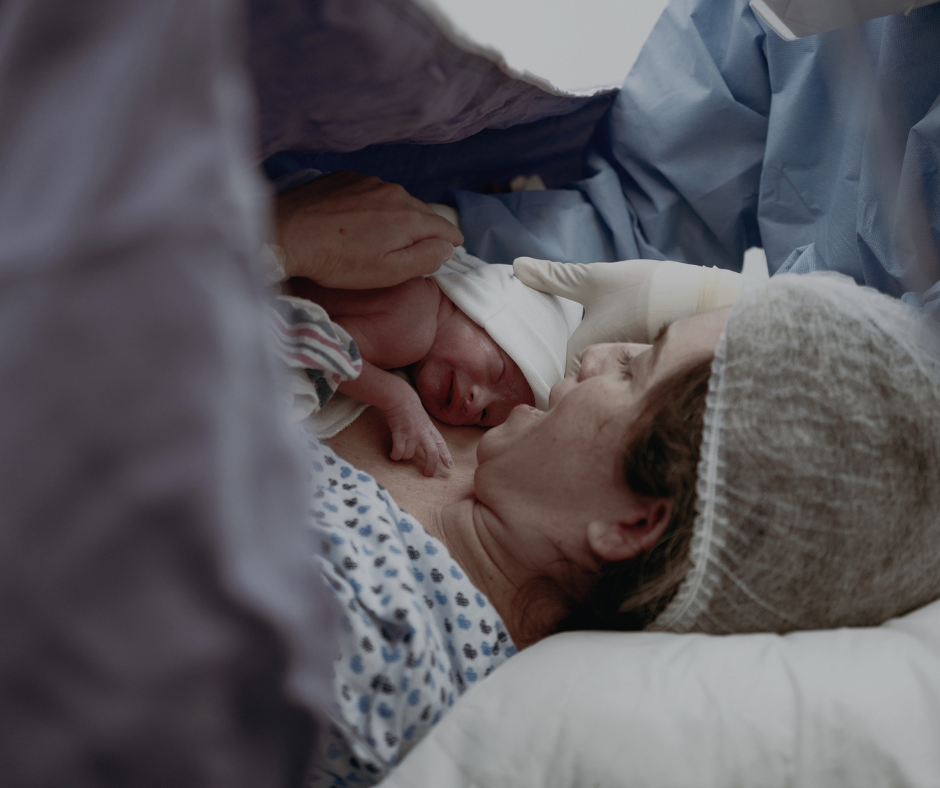Birth in Perth
In a world full of options, it seems that a pregnant woman doesn’t have many when entering the Australian birth system - the GP often refers you to your nearest Public Hospital, or to your closest Private Hospital if you have private health cover. 97.5% of women in WA gave birth in a hospital in 2019 at around a 50/50 split in private and public - but is it worth looking at other options? Just because the majority choose one way to birth, are you a total hippy for even considering and researching other birth options? Do GP’s routinely offer alternative birth choices to mothers? Let’s take a closer look…
Here’s a sweet baby to get the love hormones going… Now focus!
Why research my pregnancy and birth options?
Pregnancy care and birth care go hand in hand. How you are treated during your pregnancy will 100% affect how you view and approach your birth and postpartum. The benefits of continuity of care (having the same support team throughout pregnancy and birth) have been scientifically proven for many years. A study in 2016 stated mothers who have midwife led continuity of care are “less likely to have an epidural. In addition, fewer women had episiotomies or instrumental births. Women’s chances of a spontaneous vaginal birth were also increased and there was no difference in the number of caesarean births. Women were less likely to experience preterm birth, and they were also at a lower risk of losing their babies. In addition, women were more likely to be cared for in labour by midwives they already knew”.
With that knowledge in hand, what are my options in Perth?
Private Hospital Care
The first question is, do you have private cover? If so you have a few extra options here in Perth - the choice of an obstetrician and private hospital, or possibly private rooms in a public hospital if you prefer. Depending on the care that you would like, you can interview several Obstetricians and do many hospital tours to feel out the right one for you.
Here are links to the private hospitals in Perth and their admitting obstetricians (some can admit at other hospitals so be sure to check):
Glengarry Private Hospital - OBGYN’s
St John of God Mt Lawley - OBGYN’s
St John of God Subiaco - OBGYN’s
St John of God Murdoch - OBGYN’s
When choosing private care, beware that even a pre-paid private cover does not fully cover your pregnancy and birth care - you may still be out of pocket up to $5000. You would hope this amount of money gives you the outcomes, choice and freedom of speech you deserve (that’s for another blog post). As this is a private consumer relationship, OB’s can refuse care or “bait and switch” later in pregnancy if you choose to refuse a certain procedure or test - make sure that this also enters the conversation extremely early in your relationship and weighs into your choice. There are some amazing OB’s in Perth - it’s worth interviewing a few and seeing who you like the feel of - what suits one woman may not suit the next.
Public Hospital Care
Whether you have private cover or not, there is always a public hospital available to you in your area - country or metro. The Perth metro public maternity hospitals are:
St John of God Midland Public Hospital
When choosing a hospital to attend, check their policies and their intervention rates to make sure they align with your expectations - and keep in mind that your check ups will most likely be by a different midwife every time, and birth may be with many different midwives, student midwives and attending OB’s as shifts change. Regular public hospital care does not allow for continuity of care from pregnancy to postpartum - but there are some other options in the public system.
In Perth these are GP & Hospital shared care, Family Birth Centre Midwifery Care, Community Midwife Program or the Midwife Group Practice - let’s delve into it…
GP Shared Care
If you have a GP that you love and shares your values AND you would like to birth in a hospital this is an amazing option. Your GP can be the base point for any check ups and referrals, and you can do all your own research and make your own informed choices. Care stays with GP until later in pregnancy (around 36 weeks) at which point it transfers to your local public hospital. Depending on your GP, this model of care provides an affordable option of care, although does not provide continuity of care throughout later pregnancy, birth and then immediately postpartum. Additionally it is good to note that GP’s are GENERAL PRACTITIONERS - that are amazing for family general health care, but are not pregnancy and birth professionals and are generally not updated with latest pregnancy, birth and postpartum research.
Family Birth Centre Care (FBC) - Midwifery Group Practice Care
Family birth centres at King Edward Memorial Hospital NOR and Fiona Stanley Hospital SOR, offering amazing continuity of care through a midwife led practice and relaxed birth environment. The centres have a warm, welcoming and non-clinical environment with no visible medical equipment. Its design principles support health and wellbeing by reflecting their connection to the living world. The state-of-the-art facilities assist you to have an active labour and birth in a relaxed and informal environment that encourages the support of family and friends. Primary care is provided by a midwife or a small team of midwives to ensure continuity of care for you and your family. These experienced midwives work in a team with other health professionals to ensure your pregnancy and birth are personalised. Whilst there are exclusion criteria and policies that the midwives have to adhere to and extremely limited places (get in early!), this care is one of the best continuity of care models that is fully funded by the Australian Government.
Community Midwife Program
The Community Midwifery Program (CMP) is a model of care available to Perth women experiencing a low risk pregnancy and birth who reside within a designated catchment area. The CMP philosophy is to protect and support natural birth and to provide clients with evidence based, holistic care from known midwives throughout the continuum of pregnancy, labour, birth and the postnatal period. Through this model of care you can access midwifery continuity of care for a home birth, family birth centre birth, a vbac or hospital birth with a designated midwife - all fully funded by the government. Exclusion criteria and hospital policies do apply and places are extremely limited - as with the FBC exclusion criteria and space, but this is an amazing program that the government is providing to a small group of women every year. Jump on it if you can!
Private Midwifery Care
Largely known in the birth community as the “gold standard” in pregnancy, birth and postpartum care, a Private Midwife works for you and only you. Employing a private midwife in Australia means having a birth professional with you throughout your childbearing journey that is fully endorsed by the Australian College of Midwives (ACM) and Australian Health Practitioner Regulation Agency (AHPRA). Some Private Practice Midwives have hospital admitting rights (which means they slot in instead of the hospital given midwives), and all are able to attend a homebirth. Whilst the “Med-wife/Midwife” argument remains in the general hospital Australian model of care (following the US model) - a Private Practice Midwife usually still practices in the way midwives have through several centuries - hands off, experience and evidence based, learning about their women and fostering a relationship with them through pregnancy. They are on call for women to contact anytime without having to wait for an appointment, you have all appointments in your own home (or somewhere convenient), and there are always back up midwives on call as part of the package. Whilst there are Medicare rebates available for antenatal and postnatal appointments, the out of pocket expense is from $3,500.
Some amazing private midwives in Perth can be found here. I highly recommend Vanessa Butera - she was an unmoving rock through all 4 of my gorgeous home births right here in Perth and has been home birthing for many decades!
Doula Care
Whether you choose private obstetric care or to have your baby outside the system, doula care is always available and beneficial to you. In models of care where continuity of provider is not provided (i.e. private and public hospital systems) a doula can be vital in guiding you through your pregnancy journey. While many providers simply don’t have the time or resources to spend fostering a relationship with you for longer than 15 minutes per visit, a doula is available to you 24/7 (within reason). This gives you the time to research your choices, have resources on hand and have the same face supporting you through pregnancy, birth and postpartum. In the words of the World Health Organisation (WHO): “Evidence shows that birth companions can help to improve health outcomes. The presence of birth companions increases the likelihood that the mother will have a spontaneous vaginal delivery instead of a caesarean, vacuum, or forceps birth. Mothers with birth companions have also been shown to need fewer pain medications, be better satisfied with their delivery experience, and have slightly shorter labours.” The cost of having a doula ranges from around $1000 but as every woman is different, every package can be individually priced to suit particular needs.
With the majority of women opting for regular hospital care, we would hope in this gorgeous country we would all our needs met. Unfortunately this is not the case. Policy bound Obstetricians and Midwives are not easily able to practise in a woman-led way, and things like breastfeeding, attachment and long term outcomes for our babies are “soft outcomes” for hospitals - meaning they don’t have to deal with the ramifications of a any complications in birth.
They are also responsible for over half of WA birth of women having Instrumental (13.3%) or Caesarean (38.2%) Births - this is well over the amount WHO recommends is necessary.
So how can you decide on the care that suits you? Ask yourself some questions:
What are your philosophies around birth?
What type of environment would you feel safe birthing in?
What type of support would ensure you feel safe and informed throughout pregnancy and birth?
What plans can you make to have the best outcomes possible, and leave birth feeling like you want to do it again?
Dwelling on WHERE to birth would definitely be one of the most important factors to consider - as well as WHO to support you during your baby journey, and they really go hand in hand. A follow-up blog will be available soon to guide you on what to ask a potential health provider before you employ them. Stay tuned!
Britt xx
My name is Brittney Blakeney and I am a Pregnancy, Childbirth and Postpartum Doula, with an emphasis on education and preparation for your birth experience as a woman and mother.
My job is to give you the most up to date research so that you can make decisions with confidence, and to give you the tools, techniques and encouragement to feel calm, safe and supported during your pregnancy, birth and postpartum journey. I aim to create villages around women to ensure they feel strong, supported and listened to as they transition to their new role.
If you don’t want to miss out on any new morsels of info, subscribe to my newsletter to be notified of the latest blogs. I am based NOR in Perth, and can be contacted by email at doula@brittneyblakeney.com.au or head to my Insta to send a direct message.
Click here for some more bloggy goodness.













